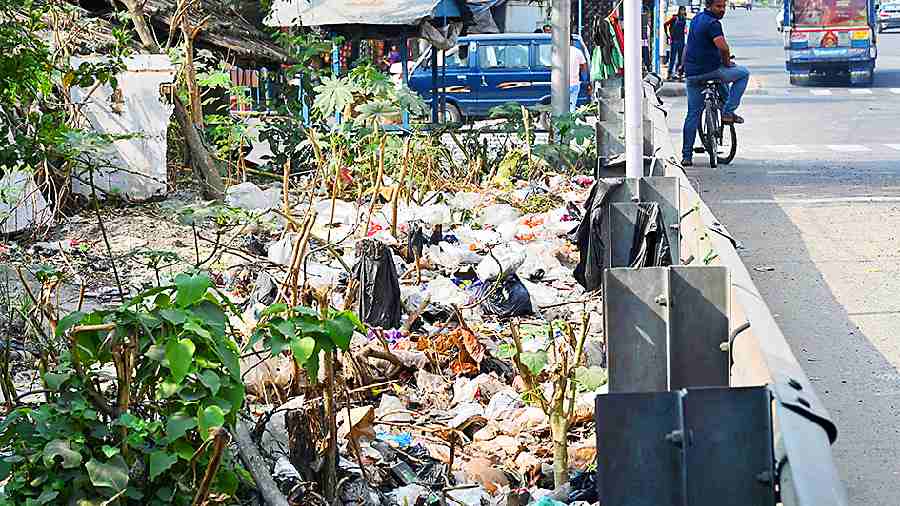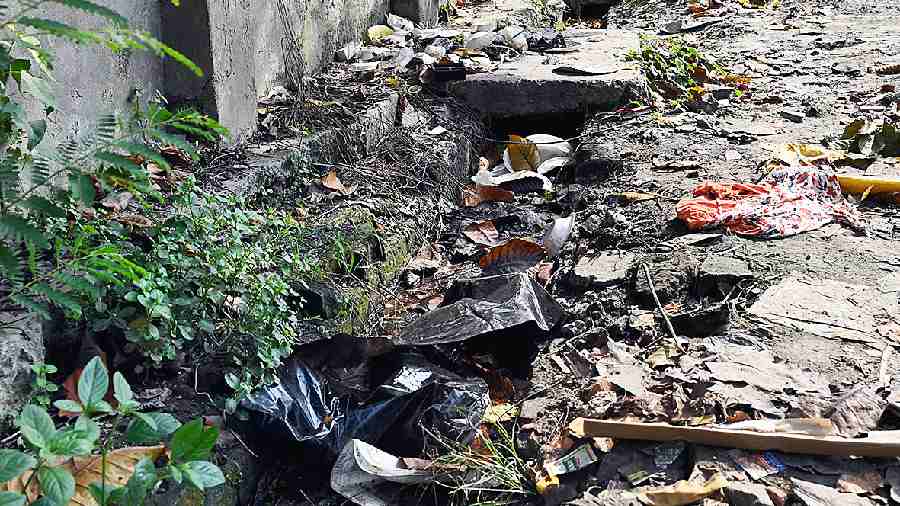A state health department official who played an important role in running the Infectious Diseases Hospital in Beleghata died of dengue at the hospital on Friday.
The principal of the hospital said the death of Anirban Hazra was a “big loss”. But vector-control measures, an essential part of any drive to curb mosquito-breeding and dengue, were still lacking in Kolkata, Howrah and other places.
Piles of waste and clogged open drains abound in Kolkata, in places as busy as Ballygunge Circular Road and near the Ruby crossing.
Hazra, who was assistant superintendent of the hospital, was a resident of Howrah’s Betiary, his Aadhaar card showed. He was admitted to the hospital on Tuesday, said a doctor.
“He tested positive for dengue,” the doctor said.
“I took charge of the hospital only about a month back. In this short period, he had helped me a lot. He was always very active in the affairs of the hospital. It is a big loss for us,” said Nabanita Bhattacharyya, principal of the Beleghata hospital.
Hazra, a homoeopath, was the editor of Chhatra Sangram, the mouthpiece of SFI, for nearly eight years. He left as editor in 2012. West Bengal on Friday reported 861 new dengue cases, according to the state health department.
Many residents of Kolkata and Howrah have said they had not noticed any vector-control drive in their neighbourhoods on a regular basis.
A resident of Cossipore’s Prannath Chowdhury Lane said vector-control workers visited their locality once in 20 days or more.
A resident of Madurdaha, off EM Bypass, said the banks of a canal in their area are covered with waste, including small containers that can turn into mosquito-breeding sites once water gathers in them.
Dengue is caused by a virus that is spread by the Aedes aegypti mosquito, which can breed in a spoonful of stagnant water.
A resident of Howrah’s Baksara said he had last seen a vector-control team in their neighbourhood about 10 days back. That was the first such visit this year, he said.
“Usually, vector-control workers come at a time when mosquito-borne diseases have spread to many areas,” said the resident.
A resident of Shibpur Kadamtala in Howrah, too, alleged that he had not spotted vector-control workers near his home in many weeks.
Many places in Howrah, he said, have open drains blocked with waste.
An official of the Howrah Municipal Corporation said they had deployed double the number of vector-control workers compared with last year.
The Telegraph spotted open and clogged drains near the Ruby crossing.
One of the drains runs along the road that adjoins the southern boundary of the transport department office-cum-bus depot near the crossing.
As the canal is clogged, rainwater can stagnate in it, creating conditions ideal for mosquitoes to breed. Also, along the canal there were a number of containers filled with water.
Similar open drains were spotted near Parnasree police station and along the western boundary of Subhas Sarobar, not very far from the Infectious Diseases Hospital in Beleghata.
The WHO website says the Aedes aegypti mosquito can breed in storm water drains. An entomologist said clogged drains are ideal breeding sites.
This newspaper on Friday saw piles of waste, which residents said accumulated for several days, near the Saptaparni housing complex on Ballygunge Circular Road, in Kasba’s Rajdanga and near VIP Baazar, off EM Bypass.
An official of the Kolkata Municipal Corporation (KMC) said the civic body had been conducting awareness campaigns and vector-control work for months.

